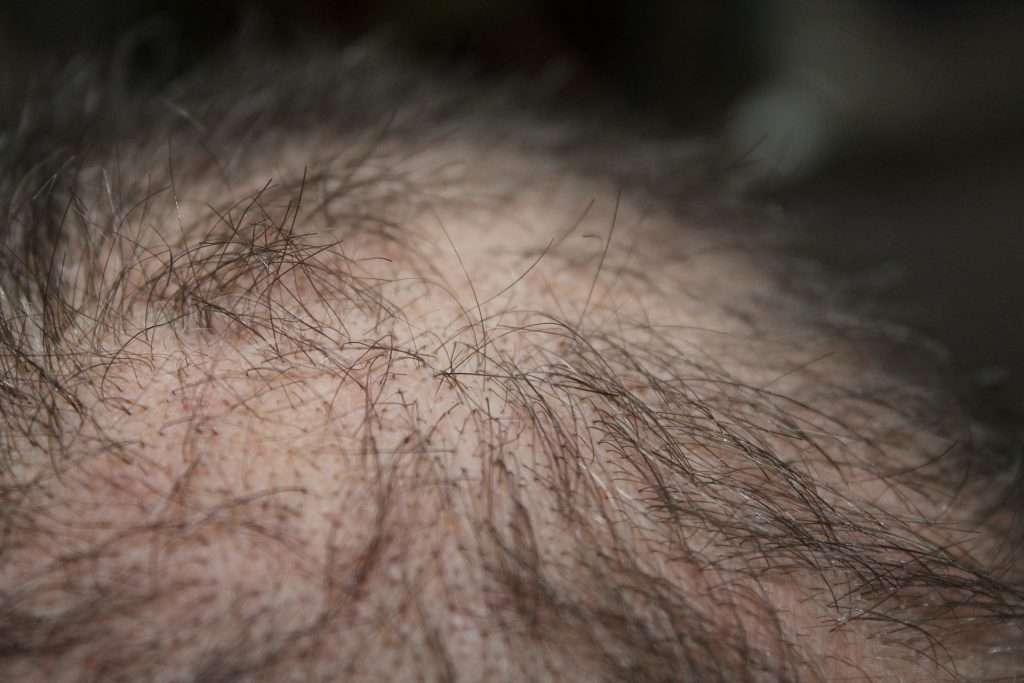I have been noticing a significant amount of hair loss in the past few months. I first saw it when my hair was wet, and I washed it, there were clumps of hair on my head. That’s when I knew something wasn’t right. The next day, after washing my hair again, I saw that almost all of the front left part of my head was completely bald! This is probably one of the scariest things that have happened to me this year, and it makes me mad that this could happen without any warning or explanation why!
If you’re like me, you might be wondering why your hair is thinning and why it’s happening now. I researched hair loss and hair thinning for a few months to figure out what might be happening. After reading this article, I hope that you will have some answers.
14 Triggers Causing Hair Thinning
Reason #1: Stress
When we’re under stress, our body produces cortisol that can cause hair loss. Cortisol is a hormone produced by the adrenal gland and released in response to physical or emotional trauma. Even if you don’t have much going on in your life, cortisol will still be present because your body is constantly making it, as part of its fight-or-flight system. But when more stressful events happen throughout the day – like commuting home from work each evening after an argument with someone at work, for example – then this constant production of cortisol creates even more hair shedding than what would typically occur naturally during periods without stress (due to natural wear and tear).

Reason #2: Autoimmune Disease
If you have an autoimmune disease, your immune system is attacking and destroying healthy cells by mistake. This can cause hair loss as well. Conditions like alopecia areata (AA) or lupus will often lead to scalp baldness due to an attack on “hair follicles.” AA causes patches of total body hair loss, whereas lupus usually only affects the scalp region, but hair shedding is possible in advance of hair loss.
Reason #3: Thyroid Disorders
Hair thinning can also be caused by thyroid disorders, such as Hashimoto’s disease or hypothyroidism (underactive thyroid). This hair thinning typically occurs when the immune system causes inflammation that disrupts hair follicles and prevents hair from growing normally. Women who are pregnant may find themselves experiencing this type of hair-related disorder due to elevated hormone levels during pregnancy which stimulates hair growth but causes an exaggerated inflammatory response afterward.
Reason #4: Pregnancy
Pregnant women often experience significant hormonal changes before, during, and after pregnancy. One of these changes is hair loss caused by increased hair follicle-stimulating hormones (TSH), which causes hair to grow and fall out more quickly than normal. This can be due to low levels of progesterone or high estrogen levels – both common in pregnant women.
Reason #5: Birth Control Pills
Side effects for birth control pills vary depending on what type you’re taking, but hair thinning, as a result, has been documented before too many times to count. It’s because since hair growth occurs every 90 days, it will start shedding again if hormone cycles don’t match up with this cycle length. This hair shedding will continue to happen as hair follicles adjust and return to their natural hair growth cycle length.
Reason #6: Iron Deficiency
Iron deficiency can lead to hair loss because your body needs iron for hair production. In the same way that you need vitamin C or calcium for healthy teeth, your body also needs iron to produce new hair strands! Iron helps hair follicles produce hair, and it’s also crucial for the cells that make up hair shafts, keratinocytes.
Reason #7: A Low-Fat Diet
Dieting or eating a low-fat diet regularly can cause hair thinning because your body uses protein to reduce stress. The reduced amount of fat in your diet will trigger the release of cortisol from fatty tissues – which causes hair loss as well! Plus, consuming too few calories might lead you to develop anemia due to a lack of iron intake, and this is another common reason people experience hair shedding.
Reason #8: Chemotherapy
Chemotherapy is used to treat cancer by killing the cells that grow too quickly. It affects hair follicles in two different ways – first, it can kill hair-growing cells (leading to hair loss!), and second, it can change hair growth cycles so that hair falls out more frequently even after chemotherapy has ended for a while. For example, one study found that women who took chemo drugs during their pregnancies had higher levels of estrogen which led them to experience hair thinning nine months later. This was because drug treatments caused changes in hormone production and altered the typical cycle length of when each new strand grows from 90 days down to 60 days on average instead.

Reason #9: Anecdotal Evidence
A hairstylist once told me that hair thinning can be caused by the friction of using a hairbrush. This is because brushing your hair will bring blood flow to the scalp and remove oils from the skin, which could potentially lead to excessive hair shedding over time.
Reason #10: Trauma
Trauma, like an accident or emotional stressor, can cause temporary hair loss too. The good news is that this type of baldness usually grows back within six months – but in rare cases where permanent damage has occurred, regrowth may not happen at all. In these instances, surgery might be possible for some individuals with certain types of trauma-related alopecia (hair loss).
Reason #11: Chemical Exposure
Chemical hair treatments like hair dye or relaxers can also cause hair loss as a side effect. This is because these products contain chemicals that may irritate your scalp and hair follicles over time, which could potentially lead to inflammation leading to hair damage and breakage. More than just the ingredients in each product, though, chemical exposure from other sources might be another factor too – including pollution such as exhaust fumes.
Reason #12: Genetics
Genetics seems to be a hair-loss cause because hair shedding may just happen naturally over time for some people. In other words, there may not be any identifiable reason why hair is thinning at all – it can just come with age or as part of your genetic makeup.
Reason #13: Seborrheic Dermatitis
You may have seborrheic dermatitis, which can cause dandruff on your scalp leading to hair fallouts from scratching it constantly without knowing it.
Reason #14: Hairstyling Tools
Whether it’s blow-drying or straightening your hair at home with a flat iron, the hairstyling process can also lead to hair loss. This is because the heat damages the follicles and makes them weaker, which will eventually cause hair thinning over time.
Conclusion
Many reasons can trigger hair thinning, but most people are not aware of the underlying causes. This blog post covered the most common hair loss triggers and why they lead to hair thinning. The best way to know if you have an issue with your hair is to consult a doctor to diagnose and treat hair loss.